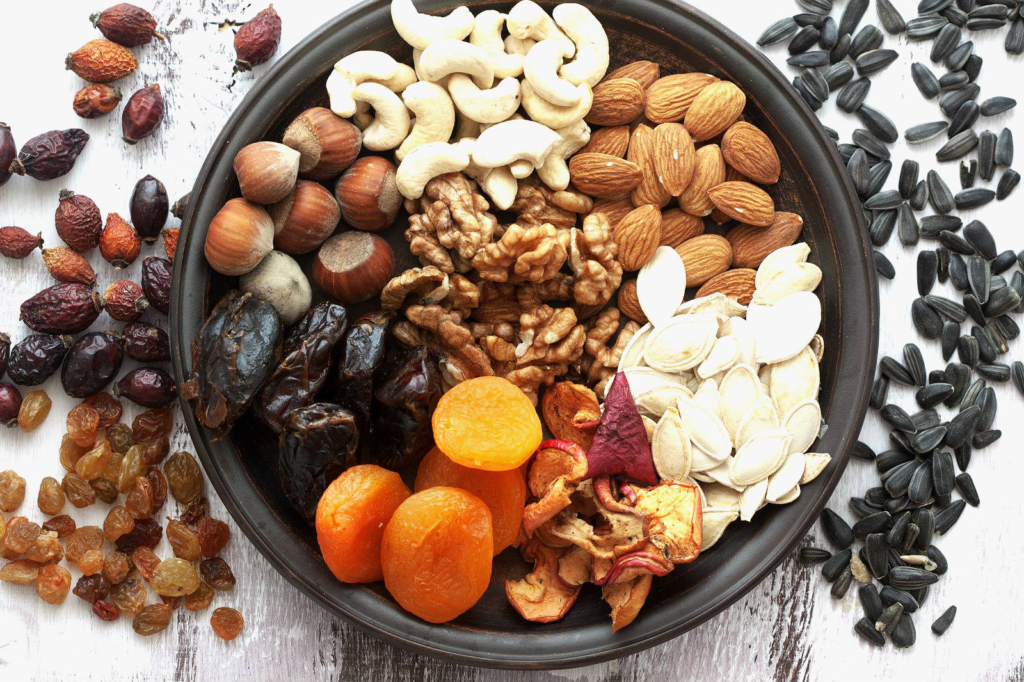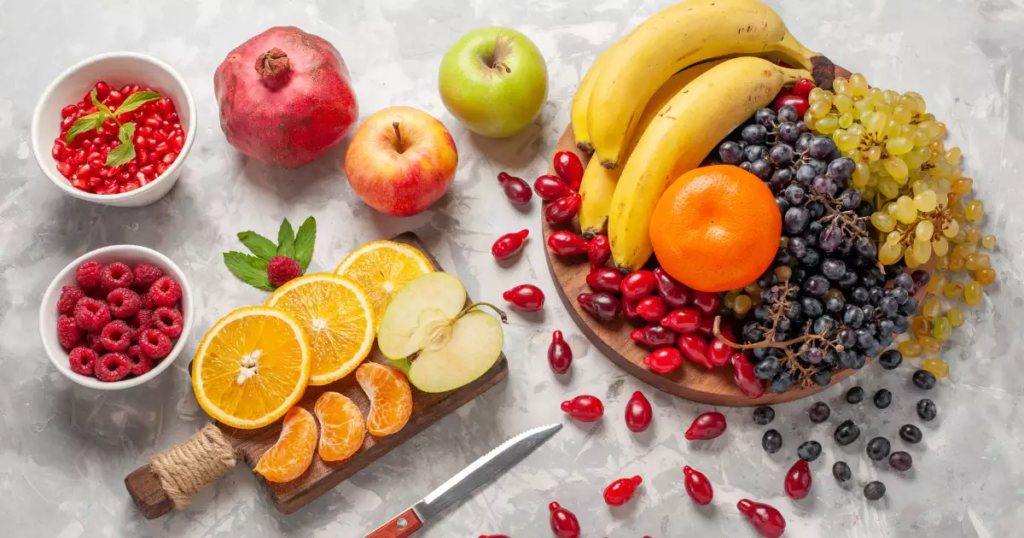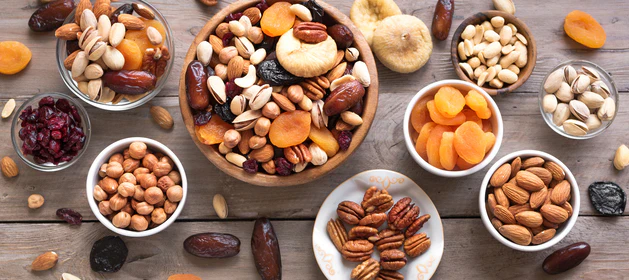
Vitamin B12 Fruits It’s one of those nutrients that you’ve heard of but may need help understanding. Let’s explore the world of vitamin B12 and learn everything you need to know, particularly about its existence in fruits.
Vitamin B12 is Crucial for Health
- Role in Red Blood Cell Formation: Vitamin B12 is essential for the production of red blood cells. These cells act like tiny oxygen delivery trucks, transporting oxygen throughout your body. Without enough vitamin B12, your body struggles to form healthy red blood cells, resulting in illnesses such as anemia.
- Importance for Nerve Function: Your nervous system is a complicated network that requires Vitamin B12 to function properly. It promotes the synthesis of myelin, a protective covering that surrounds your nerves. Without enough B12, nerve function might decline, resulting in neurological problems.
- Impact on DNA Synthesis: Every cell in your body includes DNA, and Vitamin B12 plays an important function in DNA production. It is responsible for generating and repairing DNA, ensuring that your cells work properly and remain healthy.
Challenges of Obtaining Vitamin B12
- Limited Natural Sources: One of the most difficult aspects of getting enough Vitamin B12 is that it is absent in many natural foods, particularly plant-based ones. This makes it extremely difficult for vegetarians and vegans to obtain adequate B12 through their food alone.
- Deficiency Risks: A deficiency in Vitamin B12 can cause tiredness, weakness, constipation, loss of appetite, and weight loss. More severe deficits may result in neurological conditions such as numbness and tingling in the hands and feet.

Fruits and Vitamin B12: Myth or Reality
- Common Misconceptions: There is a popular misperception that fruits naturally contain vitamin B12. In actuality, vitamin B12 does not occur naturally in fruits. However, this does not exclude you from obtaining B12 differently by eating fruits.
- Fruits Fortified with Vitamin B12:While fruits do not naturally contain Vitamin B12, some are enriched with this crucial ingredient. Enhancing the nutritional value is the practice of adding vitamins and minerals to foods to increase their nutritional worth.
Natural Sources of Vitamin B12
- Animal-Based Sources: The principal natural sources of Vitamin B12 are animal-derived. These include meats, seafood, dairy products, and eggs. For non-vegetarians, incorporating these items into their diet can help them maintain optimal B12 levels.
- Plant-Based Sources: Vegetarians and vegans may struggle to obtain enough Vitamin B12. Some plant-based foods, including nutritional yeast, plant kinds of milk, and some morning cereals, have been fortified with B12.
The Role of Fortification in Diet
- Importance of Fortified Foods: Fortified foods are especially important for people who eat a plant-based diet. They serve to address nutritional deficiencies and provide a sufficient amount of key vitamins such as B12.
- How Fortification Works: Fortification is the process of adding vitamins and minerals to food during the manufacturing stage. This can considerably improve the nutritional value of the dish while maintaining its flavor and texture.
Fruits Fortified with Vitamin B12
- List of Fortified Fruits: While uncommon, certain fruits contain Vitamin B12. Some examples are fortified apple slices, fortified fruit liquids, and nutrient-enriched dried fruits.
- Nutritional Benefits: These fortified fruits are an easy way to get Vitamin B12 in your diet, especially if you favor plant-based meals. They also provide the vitamins, minerals, and fiber that fruits naturally provide.

Incorporate Fortified Fruits into Your Diet
- Easy Recipes and Snack Ideas: Including fortified fruits in your diet is easier than you would think. You may mix them with your morning cereal or dairy products, or simply eat them as a fast snack.
- Smoothies and Juices: Smoothies and juices are great ways to consume fortified fruits. Blend fortified apple slices with your favorite greens and a dash of fortified orange juice to make a nutrient-dense smoothie.
Other Fortified Foods to Consider
- Cereals and Grains: Many morning cereals and grains are enriched with vitamin B12. These can become essential components in your diet, delivering a steady supply of critical nutrients.
- Dairy Alternatives: If you prefer dairy-free alternatives, several plant milks, including almond and soy milk, are fortified with Vitamin B12. These may be used in the same way as conventional milk in coffee, cereal, and recipes.
Preventing Vitamin B12 Deficiency
- Dietary Tips: To prevent insufficiency, make sure your diet has enough Vitamin B12. This can include animal products, fortified meals, and supplements.
- Regular Health Check-ups: Regular health check-ups can help monitor your Vitamin B12 levels and overall health, allowing for early diagnosis and treatment of deficiencies.
Recognizing Vitamin B12 Deficiency
- Symptoms and Signs: Vitamin B12 deficiency symptoms might vary, but common ones include fatigue, weakness, constipation, loss of appetite, and weight loss. Severe shortage can cause neurological abnormalities, including memory loss and difficulties walking.
- Risk Factors: specific populations are especially vulnerable to Vitamin B12 deficiency, including elderly people folks, vegetarians and vegans, and people with specific medical disorders that limit absorption.

Importance of a Balanced Diet
- Combining Foods for Optimal Health: A well-balanced diet rich in a range of foods guarantees that you receive all of the necessary nutrients. Combining fortified meals with nutrient-dense foods can improve your overall health.
- Role of Vitamins and Minerals: Vitamins and minerals work together to maintain your body’s functioning. Maintaining good health requires an equal amount of these nutrients.
Conclusion
Vitamin B12 is an important component that affects your overall health. While fruits do not naturally contain Vitamin B12, fortified choices provide a practical way to achieve your nutritional requirements. You can ensure you receive enough of this essential vitamin by adopting a range of fortified meals and, if necessary, supplements.
Read More: Screening for Osteoporosis ICD 10: What You Need to Know
Frequently Asked Questions
Can I acquire vitamin B12 from fruits naturally?
Fruits do not naturally contain vitamin B12. However, certain fruits have been fortified with Vitamin B12 to help improve your consumption.
How can I add more fortified foods to my diet?
Select fortified cereals, plant-based milk, and juices to include more fortified meals. Look for labels that say “fortified with vitamin B12.”
Is strengthened fruit as effective as supplements?
Fortified fruits can be a good method to increase your Vitamin B12 consumption, especially when paired with a healthy diet. However, people with serious deficiencies may still require supplements.
